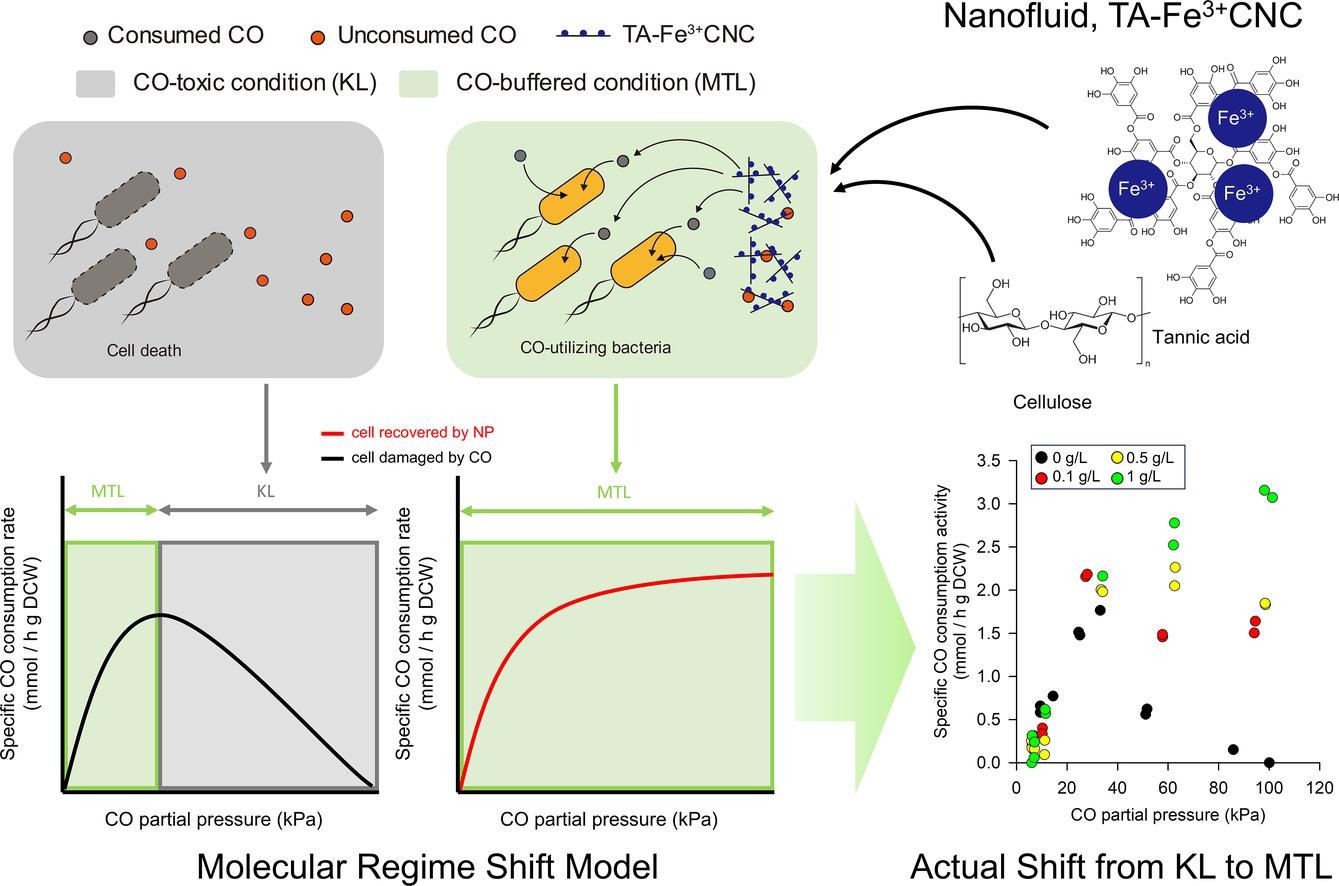
Carbon monoxide (CO) serves as a promising carbon source, but it adversely affects CO-metabolizing microorganisms. To address this issue, fermentation should occur under mass-transfer limitation conditions, where the rate of gaseous CO transfer is lower than its consumption rate. However, maintaining these conditions becomes challenging as microorganism physiology deteriorates during fermentation, requiring a novel strategy to sustain mass-transfer limitation conditions. In this study, cellulose-based nanocrystals coated with a tannic acid-Fe3+ complex (TA-Fe3+CNC) were developed. These nanocrystals exhibited reversible CO adsorption/desorption characteristics, enabling the transformation from kinetic to mass-transfer limitation conditions. This approach effectively mitigated substrate inhibition from CO with negligibly impacting cell physiology. Kinetic studies demonstrated the effectiveness of TA-Fe3+CNCs in mitigating CO inhibition under high CO partial pressures. Furthermore, computational modeling validated the successful shifting from kinetic to mass-transfer limitation conditions at the molecular level. Overall, this study introduces a novel platform for stabilizing CO metabolism by microorganisms.


















